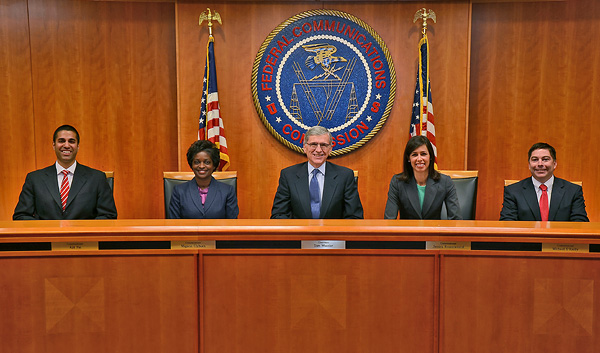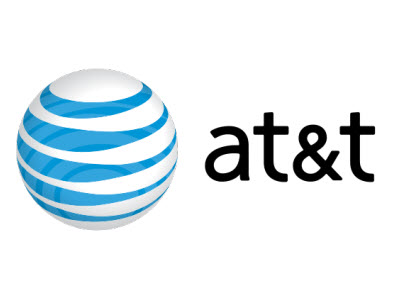AT&T Increases Data Cap In Face Of $100 Million FCC Fine
The FCC is currently planning to launch a multi-million dollar fine against AT&T for misleading customers about the performance of its unlimited data plans. In response, AT&T announced changes to its data plans, increasing the data cap, a move that AT&T is likely making to try to avoid the pending fine from the FCC, however.
Under AT&T's unlimited mobile data plans, users are given unlimited data, but the speed at which that data is accessed varies. Initially, users are given Internet access via a high-speed connection such as 3G or 4G, as specified in the plan. After the users cross a data threshold, AT&T drastically reduces the speed that users access the Internet, which limits the extent to which they could use the service. Although customers could indefinitely use the Internet, they could only do so at speeds comparable to a dial-up connection.
This has been a frequently used tactic by many mobile ISPs over the last several years. AT&T began doing this in 2011 with its "Maximum Bit Rate" policy, but the FCC is now leveraging fines against these companies for engaging in the practice. The $100 million dollar fine the FCC plans to place on AT&T is for inadequately notifying its customers that the speed of their Internet connection would be reduced after they crossed a certain data threshold, delivering performance lower than AT&T advertised.
A major reason why AT&T is being charged with this now is likely because of a change in FCC leadership. FCC Chairman, Tom Wheeler, took control of the FCC only in November 2013. Since that time, he has been extremely active in attempts to reform the Internet in the United States with his Open Internet regulations.
"Consumers deserve to get what they pay for," said Wheeler. "Broadband providers must be upfront and transparent about the services they provide. The FCC will not stand idly by while consumers are deceived by misleading marketing materials and insufficient disclosure."
Possibly in response to this pending fine, AT&T announced that it would be increasing its data cap on unlimited mobile plans. The new data cap is set at 22 GB, which may be more than enough for some users, but a few will still end up hitting that amount and have to deal with throttling the rest of the month. When users don't hit 22 GB, however, it would give the impression of having unlimited data at the full network speed.
Although this might help get AT&T out of trouble, there is still a strong possibility that the FCC will fine the company anyway, because the fine is not for the existence of the data cap or how low the cap is set, but for not clearly informing customers about its existence. Although the data cap currently isn't the issue the FCC is looking at, it might be in the future.
Get Tom's Hardware's best news and in-depth reviews, straight to your inbox.
"Unlimited means unlimited," said FCC Enforcement Bureau Chief Travis LeBlanc. "As today's action demonstrates, the Commission is committed to holding accountable those broadband providers who fail to be fully transparent about data limits."
This statement by LeBlanc could point to a change in the FCC's stance on data caps as a whole. If so, we will likely see many more fines launched against companies in the near future.
Follow Michael Justin Allen Sexton @LordLao74. Follow us @tomshardware, on Facebook and on Google+.
-
jimmysmitty It still feels weird to call a plan "Unlimited" yet to have a cap on the data. Should just call it the "22GB plan then slow as a snail". At least be honest like Verizon which is "XGB then $15 bucks per GB over".Reply -
thehritzinator If it is in their Terms of Service that the speeds will change after X amount of Data, I really don't see the issue.Reply
If the consumer agrees to the ToS without reading, any issues are not the fault of the company, but instead the fault of the consumer. -
InvalidError Reply
I much prefer "XGB then slow as snails" since you never get bill shock that way and can continue using low-bandwidth applications until the billing month rolls over.16638688 said:At least be honest like Verizon which is "XGB then $15 bucks per GB over". -
Math Geek that's the issue, it really isn't in the TOS. there was no "once you hit xGB, then we throttle you" in there.Reply
it was advertised as "unlimited high speed data" yet wasn't.
i pay for 4GB of lte per month, then unlimited "slow as snail" usage after that until the next cycle. i know what i am paying for and know what i am getting. at&t is not as clear there, hence the fcc butting in. i bet now they will be clearer about what they are offering and what customers actually get.
in the begining when the iphone first came out, unlimited was unlimited. they realized hey could not support it so they went to data caps. we all know it, and understand how the caps work. so to offer "unlimited high speed data" yet have a data cap is not only dishonest but contrary to everything we now know about how our mobile data works. -
jimmysmitty Reply16638871 said:
I much prefer "XGB then slow as snails" since you never get bill shock that way and can continue using low-bandwidth applications until the billing month rolls over.16638688 said:At least be honest like Verizon which is "XGB then $15 bucks per GB over".
I don't disagree there just that it feels sketchy to say "Unlimited" when it really is oly unlimited to a point then they try to keep you from using it. -
InvalidError Reply
They aren't cutting you off outright and they are not charging you extra either. Yes, calling that unlimited might be somewhat of a stretch but it is not strictly untrue either.16638904 said:I don't disagree there just that it feels sketchy to say "Unlimited" when it really is oly unlimited to a point then they try to keep you from using it.
They should simply change the name to "Unmetered" and call it done.
-
skit75 We also learned that if you are an ISP, you get to redefine words that have existed in our vernacular for your own marketing shell-game purposes... until you are fined $100 million dollars. Then you re-qualify the same word to mean just little bit more, than before.Reply
Raise the fine, the point of the FCC's fine, clearly hasn't been received. -
Math Geek Reply16638977 said:We also learned that if you are an ISP, you get to redefine words that have existed in our vernacular for your own marketing shell-game purposes... until you are fined $100 million dollars. Then you re-qualify the same word to mean just little bit more, than before.
Raise the fine, the point of the FCC's fine, clearly hasn't been received.
i wish life worked like this for us as it does for these businesses. imagine going to court for murder charges and saying "my fault, did not know stabbing him 58 times was murder. next time i'l only stab him 34 times at most" judge: "oh ok, have a nice day good citizen, i do hope you've learned your lesson on what is right and wrong!!"...... -
Solandri Reply
Ahem, I've had a data plan since 2000. Long before the iPhone was even a glimmer in Steve's eye. Contrary to what Apple would have you believe, smartphones and cellular data existed long before the iPhone.16638901 said:in the begining when the iphone first came out, unlimited was unlimited. they realized hey could not support it so they went to data caps. we all know it, and understand how the caps work. so to offer "unlimited high speed data" yet have a data cap is not only dishonest but contrary to everything we now know about how our mobile data works.
When they first advertised data plans, speeds were around 10-30 kbps. 1.5 Mbps DSL was the norm, and cable modems offering 5-8 Mbps were starting to show up. So nobody serious about using the Internet would be satisfied with a cell phone data plan. Not to mention you had to unplug the phone from your computer in order to charge it (first combo data+charger cable I saw was in 2004). So the carriers figured it was safe to advertise them as unlimited. I pointed out at the store that that could become a problem when data speeds got faster, but the sales rep shrugged it off since it wasn't his problem.
When data speeds got fast enough that you could realistically use your phone as your only Internet connection, they first tried to throttle it. That was bad enough on a plan they were selling as "unlimited." But in addition to that, they didn't tell you what the cap was. You'd be using your phone's data, then suddenly with no warning - blammo, you were at dialup speeds. The cable companies tried this too. For years they'd cancel people's service for exceeding a secret monthly bandwidth limit. Kinda like police giving tickets for exceeding a secret speed limit. I'm not sure what they were thinking - trying to intimidate people into lowering their usage even if they weren't near the cap? The whole thing was just ripe for a FTC investigation.
Now common sense is finally prevailing. Up til now, marketing departments have resisted honest disclosure because they didn't want anything which could be perceived as a negative or a drawback. The companies are finally telling marketing to STFU so they can tell customers up-front what the monthly data cap is, and exactly what happens when you exceed it. AT&T's fine is for not disclosing this throttling to customers on grandfathered unlimited plans.
(As for throttling an "unlimited" account, there's enough wriggle room in the term "unlimited" because even if you saturated it 24/7, you were still limited by the connection's bandwidth. And the actual bandwidth is determined by how much data other customers use. In other words, "unlimited" does not equal "infinite" and is subject to organic bandwidth limits. In particular, AT&T was fined because rather than throttle only if the tower's bandwidth was saturated, they throttled the moment you passed a GB/mo limit even if the tower had plenty of bandwidth available.) -
rawoysters Reply
This may be the worst analogy I've ever seen.16638977 said:We also learned that if you are an ISP, you get to redefine words that have existed in our vernacular for your own marketing shell-game purposes... until you are fined $100 million dollars. Then you re-qualify the same word to mean just little bit more, than before.
Raise the fine, the point of the FCC's fine, clearly hasn't been received.
i wish life worked like this for us as it does for these businesses. imagine going to court for murder charges and saying "my fault, did not know stabbing him 58 times was murder. next time i'l only stab him 34 times at most" judge: "oh ok, have a nice day good citizen, i do hope you've learned your lesson on what is right and wrong!!"......

